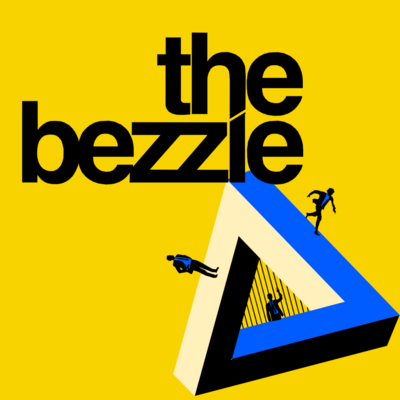Apple’s most valuable intangible asset isn’t its patents or copyrights - it’s an army of people who believe that using products from a $2.89 trillion multinational makes them members of an oppressed religious minority whose identity is coterminal with the interests of Apple’s shareholders.
–
If you’d like an essay-formatted version of this thread to read or share, here’s a link to it on pluralistic.net, my surveillance-free, ad-free, tracker-free blog:
https://pluralistic.net/2024/01/12/youre-holding-it-wrong/#if-dishwashers-were-iphones
1/
@pluralistic@mamot.fr I wonder how this will age when you can do a 3rd party app store and the iphone and its customer base remains basically unchanged.
I find condescending commentary like this very weird. Iphones are simply really nice to use. Having a phone thats nice to use seems like a weird concept to some people.
@NBAnthony2k@mastodo.neoliber.al I assure you, I find commentary that assumes that Apple spends millions of dollars lobbying to prevent the emergence of rival app stores that no one would use anyway even more baffling.
@pluralistic@mamot.fr What measurable metrics you think will change once 3rd party app stores are allowed on iphone?
@pluralistic@mamot.fr These buffoons sure haven’t figured out the difference between pro-market and pro-business.
Unfortunately a lot of voters don’t seem to have either. 🥶
@pluralistic@mamot.fr oh snap 🍿 here we go
@pluralistic@mamot.fr
I wish Mastodon had a way to collapse/hide these long threads. I read and enjoy them on the blog but still have to scroll through pages and pages of posts, sometimes missing other people’s which have become embedded.
Is there something I’m missing (using an Android phone)?@godzero@sfba.social
@pluralistic@mamot.fr
Thanks! I did not know about this.
Take the #AppStore. Apple blocks third parties from offering rival app stores for its #iOS platform, which means you can only install apps that have been blessed by Apple. That blessing is contingent on the software authors involved giving $0.30 out of every dollar you spend in their apps to Apple.
2/
@pluralistic@mamot.fr 1/2 Not saying I wholly disagree, but I’d like to hear your take on the following:
If you wanted to open a place in my food court, and you made good money from doing so, since the people who only look for food outside the mall typically have less available money and lower willingness to pay, would you say I’m robbing you if I started to demand rent or kick you out otherwise?
@pluralistic@mamot.fr 2/2 In other words, is providing a platform on which to attract potential customers for free on is a basic feature a service, and if yes, is it a service for which payments need to be rendered?
Relatedly, would a flat fee be better? You pay the mall’s rent, and either you have the $5k/mo necessary, or you’re booted out – this is how it’s done in real life, capital trumps – instead of a percentage revenue cut? (small devs/dev companies are the analogy)
@lm1@mastodon.social The problem with the analogy is that you’re not operating a restaurant, you’re selling me groceries, which I take home, and then you’re insisting that I can only cook them in pots whose makers paid you 30% vig - and you’ve found a law that makes it a felony for me to use other pots, in my own house, with my own groceries.
You sold me the groceries. If you have regrets about how I prepare them, that’s a you problem.
This has two effects: first, it makes certain products impossible to offer. The gross margin on an audiobook is 20%. Apple takes a 30% cut of sales. Try to sell audiobooks in an app, and you’ll lose money on every sale. That’s why non-Apple audiobook stores like Libro.fm and #Downpour require you to buy your books in a browser, which hamstrings them and gives Apple an unbeatable advantage (Apple doesn’t charge itself 30% on every transaction, obviously).
3/
But at least you can buy audiobooks on Apple Books. There are plenty of services whose gross margins are lower than 30%. Apple’s 30% #AppTax renders these unviable, and if Apple doesn’t deign to offer its own in-house monopoly version, the service is simply unavailable as an iPhone app.
But that’s not the only bad outcome. Some lucky service providers are able to pay the #AppleTax by gouging Apple’s customers, raising prices to pay the danegeld. That’s the second effect.
4/
This is obviously bad for industry. Take the news media: some people think the thing that #BigTech steals from the news is the news itself. That’s a frankly bizarre argument: including the news in a search index or providing a forum where people can talk about the news is not bad for the news. News you’re not allowed to find or talk about isn’t news, it’s a secret.
5/
But Big Tech most assuredly steals from the news: it steals money. The #AdTech duopoly takes 51% out of every ad dollar. Social media holds news subscribers to ransom and requires “boosting” payment to reach the people who’ve asked to see their articles. And the mobile duopoly takes 30% out of every in-app subscription dollar:
6/
The mobile duopoly likes to talk about the #MobileEcosystem, but it’s no ecosystem - it’s a pair of walled gardens:
It’s a planned economy run by a pair of corporate executives who deliberate in secret and are accountable only to their shareholders. Thankfully, some regulators are alive to the hazards of this #technofeudal arrangement and are taking firm measures:
7/
These regulators couch their enforcement action in terms of defending an open market, but the benefits to app makers is only incidental. The real beneficiaries of an open app world is Apple customers. After all, it’s Apple customers who bear the 30% app tax when it’s priced into the apps they buy and the things they buy in those apps. It’s Apple customers who lose access to apps that can’t be viably offered because the app tax makes them money-losing propositions.
8/
It’s Apple customers who lose out on the ability to get apps that Apple decides are unsuitable for inclusion in its App Store.
That’s where the #CultOfMac steps in to cape for the $3 trillion behemoth. The minority of Apple customers for whom their brand loyalty is a form of religious devotion insist that “no Apple customer wants these things.”
9/
@pluralistic@mamot.fr
apple did drop this to $0.15 for developers earning less than $1 million per year. ps: not defending them in any way, I’m an iOS/macOS developer myself, and I totally concur with your thread here.
@pluralistic@mamot.fr a lot more needs to be said about the 2-3 decades that tech used PR to really horrific ends, and the journalists and interested tech employees who help them out
@pluralistic@mamot.fr Yeah, I’ve been using “iCult” as a term for a while. I’d bet it’s not unique to me.
@pluralistic@mamot.fr The sad thing is that I agree with most of your criticisms, but when you veer off into calling Apple customers cultists … you just lose me.
People just want nice things.
Should they care more about repairability? Should we regulate abusive monopolies? Yes, of course.
But people don’t buy Apple products because of a reality distortion field. They buy Apple products because they’re nicer.
@Chrisdowney@mstdn.social I can only assume that you haven’t read the parts of this post where I identify specific cult-like behavior.
@pluralistic@mamot.fr I just think that’s your interpretation of the behavior. The “Steve Jobs reality distortion field” was a term invented by people who just didn’t see the value in what Apple had made.
Don’t get me wrong, I love your writing, and agree with many of your points. Just seems to me that this focus on Apple being a cult detracts from the real issue which is that they are an abusive monopoly.
@pluralistic@mamot.fr I would love to see your analysis about Apple refusing to put SD storage slots on their products, and then switching iOS Photo’s default mode to store images as (much larger) movies… thus forcing many users at inopportune times to use iCloud (before E2E encryption was a feature).
BTW, I use an older iPhone and #iOS constantly nags that its not fully setup because I don’t have #iCloud linked to it.
#Apple #darkpatterns #dataheist
@pluralistic@mamot.fr You just explained it straight forward and exactly to the point. Well said my man.
@pluralistic@mamot.fr IMO, if you’re in the Apple cult, you should be invested in Apple the company. Nearly 40% of Apple shareholders are non-insider individuals. A share of AAPL is currently valued at less than $200, less than a new iPhone. If you haven’t already joined us, save your cash back on Apple Card purchases, invest it in Apple stock, and merge your interests.
@pluralistic@mamot.fr I love your writing but I struggle with the full spelled out URLs in between paragraphs. It makes the screen reader experience awful. :-( Any particular reason you do links this way and not as hypertext or footnotes?
@lyonsinbeta@mastodon.social Three reasons:
-
To make the text copy-pasteable without losing the links, even if the clipboard fails to pick up metadata; and
-
To offer readers whose apps or clients rewrite URLs with analytics loops (e.g. Twitter’s t.co) - the URLs can be copied and pasted into your location bar; and
-
To expose the semantics of the URL so that readers have an idea of where they’re going before they click.
@pluralistic@mamot.fr maybe foot notes? 🙏
-













